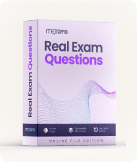Cisco 700-602 - UCSInvicta Systems Engineer Exam Exam
Page: 2 / 16
Total 80 questions
Question #6 (Topic: )
Which three workloads are ideal to accelerate using Cisco UCS Invicta? (Choose three.)
A. Mobile applications
B. Database loads
C. Transitioning from disk-based to in-memory databases
D. Storage media for backup and recovery operations
E. Virtual desktops
F. Batch processing
Answer: B,E,F
Question #7 (Topic: )
Which three options are three benefits of faster applications based on Cisco sales
experiences? (Choose three.)
experiences? (Choose three.)
A. Run more virtual servers on a single physical host
B. Consolidate high-performance computing nodes
C. Consolidate databases
D. Consolidate servers
E. Consolidate virtual machines
F. Combine big data applications alongside relational databases
Answer: A,B,F
Question #8 (Topic: )
Which option is the definition of the "RAID penalty"?
A. The limitation that RAID can only be enabled for one storage shelf per cluster
B. The increase in the purchase price for a product when RAID is utilized
C. The extra wait time required for all operations required by the RAID level
D. The fact that RAID requires a dedicated cache to properly function
Answer: C
Question #9 (Topic: )
Which protection mechanism is used by the Cisco UCS Invicta appliance to protect data
writes if a power outage occurs?
writes if a power outage occurs?
A. The UPS option is available to prevent loss of power to the device.
B. The LSI RAID card protects data in the event of power loss.
C. The QLogic HBA card protects data in the event of power loss.
D. The NVRAM card protects data in the event of power loss.
Answer: D
Question #10 (Topic: )
Which three statements about solid state drives are true? (Choose three.)
A. Solid state drives typically exceed the capacity of hard disk drives.
B. Solid state drives typically deliver about 1,000 times less latency than hard disk drives.
C. Solid state drives typically deliver 5-10 times less latency than hard disk drives.
D. Cisco best practices dictate that random and sequential workloads should not be mixed on the same solid state drive because poor performance results.
E. Solid state drives typically deliver about 100 times the IOPS performance of hard disk drives.
F. Solid state drives do not suffer from mechanical seek time latency.
Answer: A,B,F
